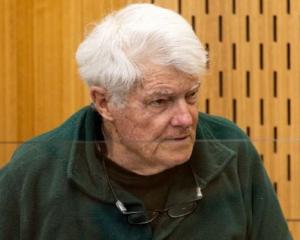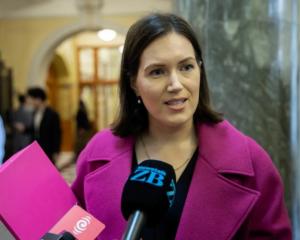
A farmer who said his eggs were free-range when they were not claimed in court that the practice was widespread, and an industry body says it ultimately comes down to the honesty of farmers to provide correct labelling on their products.
John Garnett, owner of now-defunct Northland egg producer Forest Hill Farm, was sentenced to 12 months' home detention and 200 hours' community service in the Whangarei District Court yesterday [TUESDAY].
Between April 2010 and November 2011 Garnett and his company falsely packaged and sold more than 206,000 dozen cage eggs as free-range or barn-laid.
The chickens were actually kept in cages.
The 38 retailers, including several large supermarkets in Auckland and Northland, believed the contents were genuine, and sold them to customers as free-range, which led to about 200,000 people buying what they thought were free-range eggs.
A Commerce Commission spokesperson said affected brands included Select, sold at Countdown, and Pams, which was sold at New World and Pak'nSave.
New Day was also a free-range label used by an egg producing co-operative of which Forest Hill Farms was a member.
The Commission estimated that Forest Hill Farm made an additional $376,000 from the sale of more than 206,000 dozen falsely labelled eggs with a retail value in excess of $1 million.
In sentencing, Judge Duncan Harvey noted what he described as a "disturbing comment" by Garnett that such conduct was common in the egg industry.
Judge Harvey said the court needed to hold Garnett accountable for deceiving his suppliers and the public at large.
He said Garnett decided to embark on massive fraud in order to save his business and its 20 employees -- a conduct that was likely to diminish public confidence in the egg industry.
However, Judge Harvey said had it not been for Garnett's guilty plea, his voluntary return from Australia and cooperating with the commission's investigation and health issues, he would have gone to prison.
Claire Paterson, representing the Commerce Commission, said Garnett embarked upon a serious and sustained deception of an important grocery item plainly designed for commercial gain.
The offences were committed after business hours or at Garnett's home to conceal them from his staff.
He told his farm manager that such a conduct was profitable, and justified it by saying that others in the egg industry were doing it, she said.
The Commission didn't oppose a sentence of home detention if the judge was minded to impose one.
Garnett's lawyer Julie Young said her client has had a long-standing business reputation in the community and that he was remorseful.
Executive Director of the Poultry Industry Association New Zealand, Michael Brooks, said they were very pleased to see Garnett prosecuted for his wrongdoings.
It was they who initially found out about Garnett's operation and raised it with the Commerce Commission, Mr Brooks said.
He said this was a rare case, with the last reported case in 2001, and sent a very clear message to farmers they would not get away with any similar operations in future.
Mr Brooks explained that while the Ministry for Primary Industries (MPI) audited every farm for food safety once a year, it was the farmer's responsibility to label eggs correctly.
"Fundamentally farmers must label correctly and honestly, otherwise they run into the situation we have here."
However he said MPI would most certainly notice if a cage farm operation was dishonestly labelling eggs as free-range.
"It has sent a very clear message to anyone thinking about doing it that this is not OK," he said.
Mr Brooks said he was disappointed that the "stupid" actions of a "rogue farmer" may dent customers' faith.
"Consumer trust is absolutely important, and consumers can be confident that this sort of thing isn't happening."
Garnett was handed a harsh sentence, Mr Brooks said, and he was pleased he was prosecuted and sentenced for his actions.
"We want the consumer to appreciate that it was done for their interest and for industry integrity, and we are very pleased with the result.
"It sends a clear message to consumers, but also to anyone who is stupid enough, frankly, to think they can try and dupe consumers in this way."
In October 2002, Willem Klaas Stolte, the owner/operator of Masterton Poultry Farm, was fined $10,000 in the Masterton District Court after pleading guilty to breaching the Fair Trading Act over the sale of free-range eggs sold under the Hen House brand in 2001.
A Commerce Commission investigation revealed Stolte was selling barn eggs as free-range over a period of seven months that year.
During that period more than 17,000 dozen more free-range eggs were sold than were actually produced.
- By Nikki Papatsoumas and Imran Ali
FACTBOX
* There are no regulations that control the definition of a free-range egg, and consumers are reliant on the honesty of egg farmers to identify eggs correctly.
* Chickens that had the ability to go outside were defined as free-range.
* There are 130 egg farms in New Zealand, 70 of which are free-range.
* Free-range eggs make up 12 to 13 per cent of the market.
* Brands affected through Garnett's operation included Select, which was sold at Countdown, and Pams, which was sold at New World and Pak n Save across Northland and Auckland












